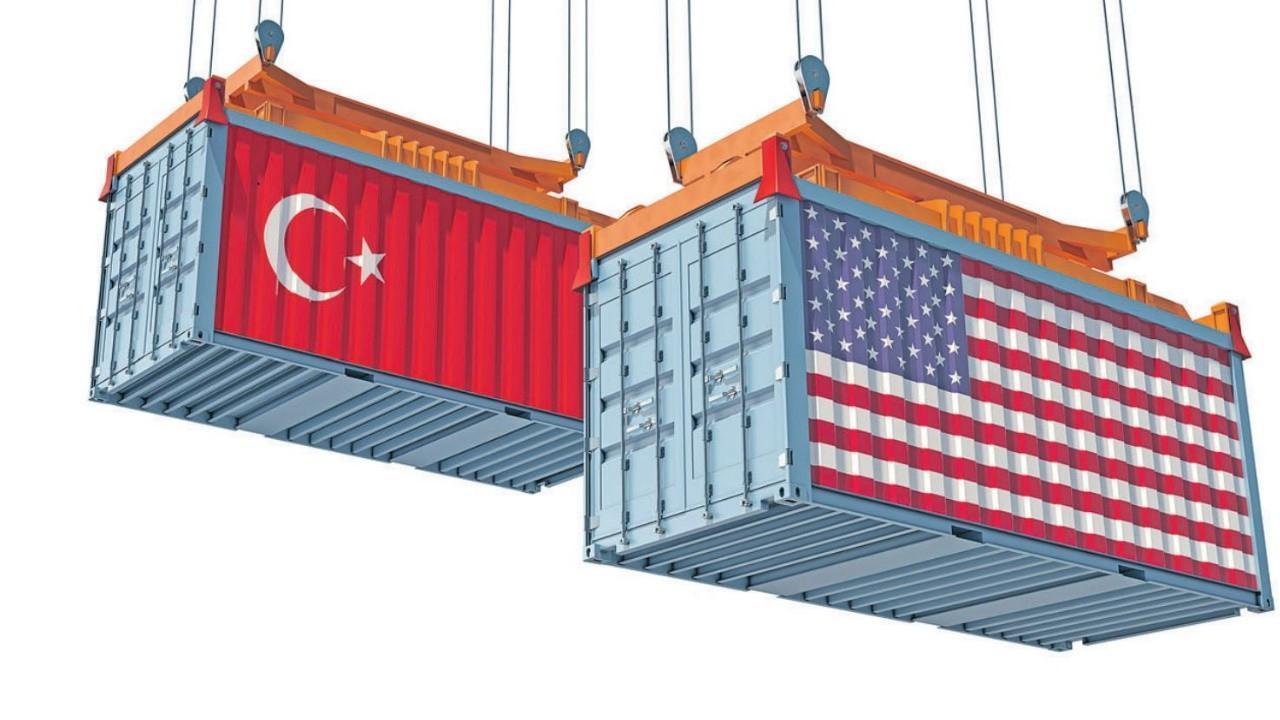Turkish exports to the U.S. increased by 45.1% in January-November 2021, compared to the same period last year, reaching USD 13.2 billion, according to Mehmet Ali Yalcindag, chairman of the Foreign Economic Relations Board (DEIK) of the Turkey-USA Business Council (TAIK). Yalcindag evaluated Turkish-American trade relations, bilateral issues, the Halkbank case, and trade wars at an online meeting with a group of press members on Saturday.
A record has been broken in Turkish-American trade figures since the beginning of this year, said Yalcindag. “Our trade with the U.S. was stagnant in 2020 due to the COVID-19 measures and fundamental changes in the supply chain. The level reached this year will excite business circles in both countries.” Exports to the US have also exceeded imports, which totaled USD 11.7bn in the first 11 months of 2021. Total trade volume is over USD 25bn.
The U.S. share in Turkey’s total exports rose to 6.4% in the first 10 months of 2021, from 5.6% in the same period in 2020. “This remarkable increase in our exports to the U.S. is quite exciting. We believe that the trade volume will reach much higher levels with new opportunities,” Yalcindag stated.
He also pointed out that the U.S. has an import volume of USD 2.3tr and a USD 20tr economy. “We see the Biden administration’s stance of separating political issues from trade as extremely valuable,” he noted.
Taking China as a model in technology
Commenting on Turkey’s changing role in the new supply chain developments, Yalcindag said that Turkey should aim to reach the highest possible levels in the value and supply chains. “The Turkish business world’s goal is not to be an alternative to China in terms of cheap labor. We need to look at China, which produces technology, as a model for ourselves. We are aiming for a point where we will closely follow regional and global developments, be equipped with the best-in-class technology, manage well-trained and qualified human resources, and have the dynamism to respond instantly to demands from all over the world,” he added.
Yalcindag also said that a concrete step has been taken recently to solve the issue of the Section 301 bill, which proposes the imposition of a 25% additional customs duty on products such as jewelery, ceramics and carpets, the bulk of Turkey’s exports to the U.S.
Trade ministers to meet on additional tax
Yalcindag also spoke about further issues that need to be addressed, such as additional taxes on aluminum and steel imposed on Turkey in accordance with Section 232. “We have told our interlocutors how this scheme is a problem for Turkish industrialists. The announcement at the end of November that the additional taxes for the E.U. will be abolished indicates that Turkish industrialists will face a cost disadvantage as of January 2022,” he said. He further noted that he is looking forward to the outcome of meetings Trade Minister Mehmet Mus will hold with U.S. Secretary of Commerce Gina M. Raimondo and U.S. Trade Representative Katherine Tai, hoping they will resolve the issue.
TAIK carefully observed the trade wars between the U.S. and China as well as the devastating effects of the pandemic on the global supply chain, Yalcindag said. He said that this offered Turkey attractive opportunities. “The trade volume between the U.S. and China is close to USD 600bn. U.S. imports from China contracted by 16%, USD 90bn, in the 2018-2019 period alone. This decrease in bilateral trade volume could hasten by up to USD 200bn a year by 2023. With the U.S. shift in supply chain away from China, Turkey stands out as an alternative supplier, along with Vietnam, Cambodia, Taiwan, Mexico and Canada,” he said.
Commenting on the ongoing Halkbank case in the U.S, Yalcindag said, “Halkbank is undoubtedly an important bank for Turkish-America trade relations. It also has a very important place in the Turkish economy. We maintain our belief that this process will be resolved fairly considering rule of law and we are following the process closely.”










